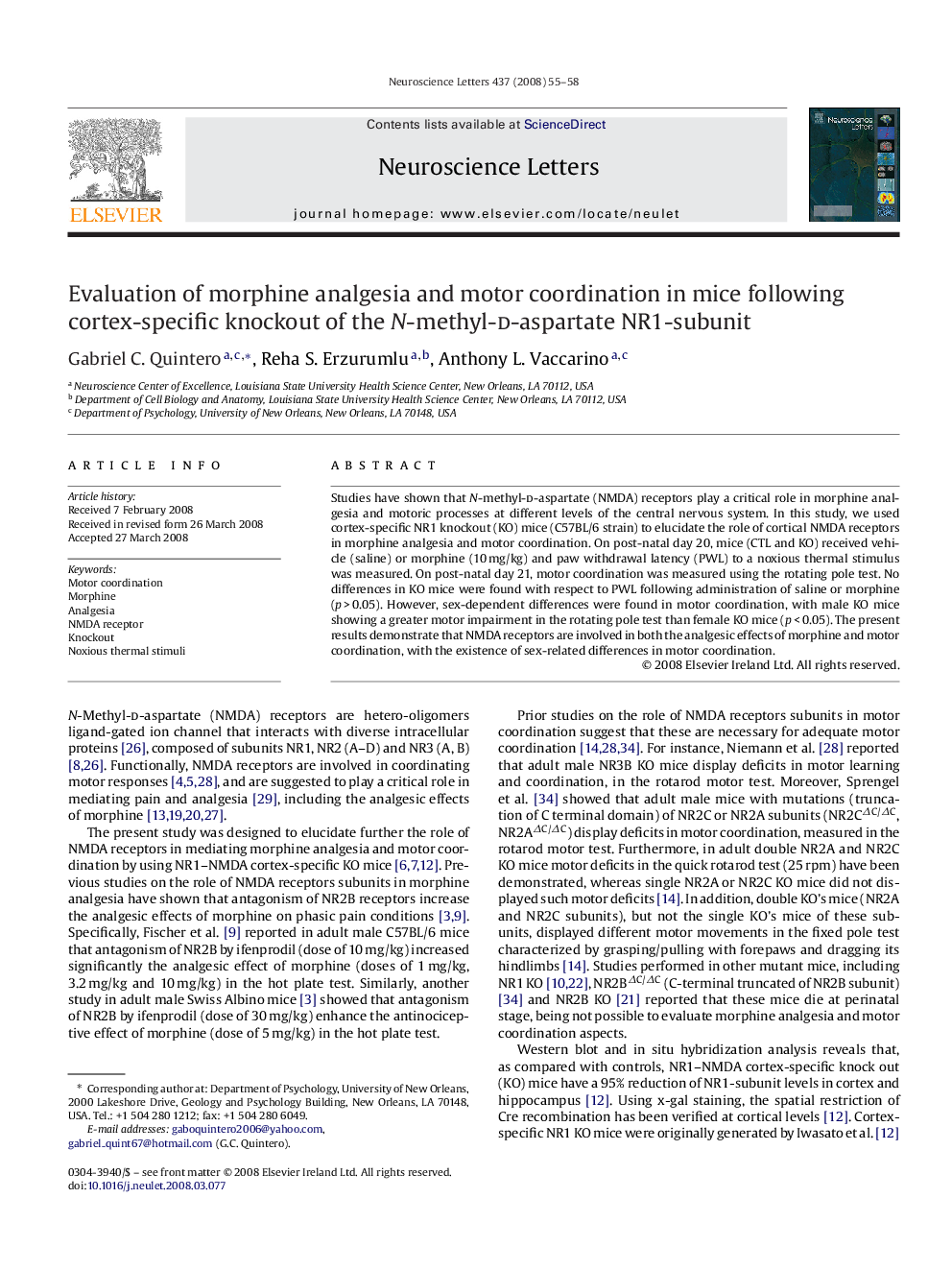| Article ID | Journal | Published Year | Pages | File Type |
|---|---|---|---|---|
| 4348349 | Neuroscience Letters | 2008 | 4 Pages |
Studies have shown that N-methyl-d-aspartate (NMDA) receptors play a critical role in morphine analgesia and motoric processes at different levels of the central nervous system. In this study, we used cortex-specific NR1 knockout (KO) mice (C57BL/6 strain) to elucidate the role of cortical NMDA receptors in morphine analgesia and motor coordination. On post-natal day 20, mice (CTL and KO) received vehicle (saline) or morphine (10 mg/kg) and paw withdrawal latency (PWL) to a noxious thermal stimulus was measured. On post-natal day 21, motor coordination was measured using the rotating pole test. No differences in KO mice were found with respect to PWL following administration of saline or morphine (p > 0.05). However, sex-dependent differences were found in motor coordination, with male KO mice showing a greater motor impairment in the rotating pole test than female KO mice (p < 0.05). The present results demonstrate that NMDA receptors are involved in both the analgesic effects of morphine and motor coordination, with the existence of sex-related differences in motor coordination.
